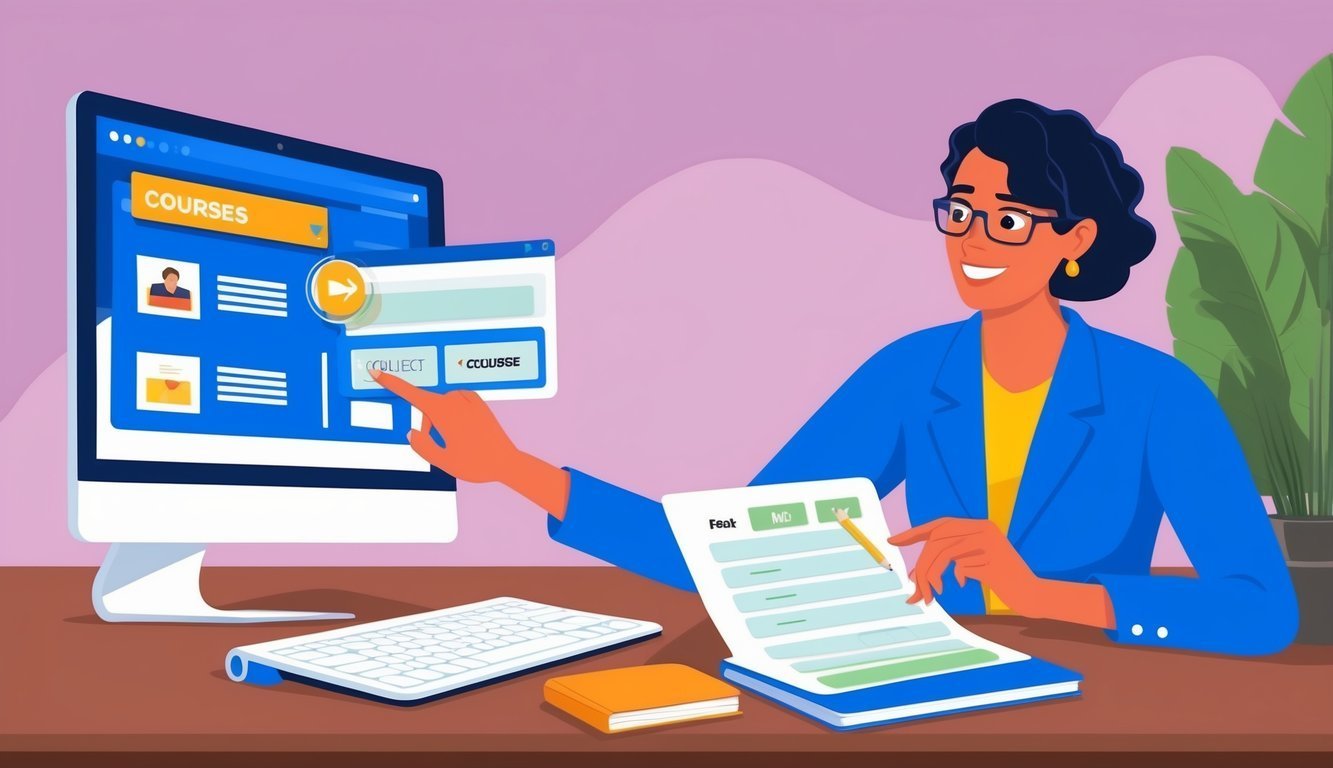“`xml
Considering Homeschooling? Here’s How to Get Started
Thinking about homeschooling your kids? It’s a big decision, but it can be incredibly rewarding! Just imagine the freedom to learn at your own pace and in your own style.
Pretty exciting, huh?
First things first: check your state’s laws.
Every state has unique rules, so you’ll want to do a bit of homework to get everything squared away.
You’ll need to pick a curriculum that’s right for your family and fill out some paperwork.
It sounds a bit daunting, but it’s all part of the journey!
It’s all about taking that first step.
You’re not alone in this! Many families are jumping on the homeschooling bandwagon, and there’s loads of support available.
Want to connect with fellow homeschoolers? Join online groups where you can swap stories with other parents, or look for local meet-ups.
These connections are pure gold when you’re just starting out.
Remember, homeschooling doesn’t have to be rigid.
Flexibility is the name of the game! If something isn’t working, you can always change it up.
Finding what fits your family best is what matters most.
Take it step-by-step, and don’t hesitate to ask for help when you need it.
Nobody has it all figured out, and that’s totally okay.
Your Quick-Start Guide
- Check your state’s laws and file the necessary paperwork to homeschool legally.
- Choose a curriculum that meshes well with your family’s learning styles.
- Connect with other homeschool families for support and resources.
Getting Started with Homeschooling
Sure, getting started with homeschooling can feel overwhelming, but it’s totally manageable with the right information.
You’ll want to familiarize yourself with the laws, pick a curriculum that excites your kiddos, and draft a schedule that works for everyone.
Homeschooling Laws 101
Homeschooling isn’t one-size-fits-all. Laws vary by state, and knowing the lay of the land is crucial.
Some places require yearly testing or progress reports, while others are, well, laid-back.
Here are some key things to keep in mind:
- What subjects are required?
- Do you need any special teacher qualifications?
- What are the record-keeping rules?
- What are the attendance requirements?
Joining a local homeschool group is a smart move—they can give you the scoop on the ins and outs of local laws.
Plus, you’ll get support, and possibly even meet friends for your kids.
If you’re feeling unsure about how to sign up, they can walk you through the paperwork.
Being part of a community can make this adventure smoother and more enjoyable for everyone involved.
Choosing the Right Homeschool Curriculum
Now, let’s talk curriculum.
There are so many choices out there, it can be a bit like a kid in a candy store! Think about your kids’ learning styles and what sparks their interest.
Some popular options to consider include:
- All-in-one boxed curricula
- Online classes
- Unit studies
- Classical education
- Unschooling
And don’t sweat it if you want to mix and match! Many families use different curricula for different subjects.
You might buy a math workbook while exploring science through fun projects—whatever works for you!
Creating Your Homeschool Schedule
Having a solid schedule can really help everyone stay on task, but keep it flexible! Many homeschoolers don’t stick to a strict school-day routine.
Here are some tips for crafting your schedule:
- Start the day with core subjects.
- Incorporate breaks and some outdoor time.
- Make room for field trips and exciting projects.
- Plan for social activities, too!
Just remember, your schedule can evolve. What works well in the fall might feel off in the spring.
It’s perfectly okay to adjust as you go!
Building Your Homeschool Network

Let’s face it: having a solid support network will make your homeschooling journey a lot smoother and enjoyable! It’s like having a big slice of pie shared with friends—way better than doing it alone.
Connecting with Homeschool Co-ops and Support Groups
Homeschool groups can help you meet other families in your area.
These groups often plan educational field trips, host classes, and organize social events.
Check them out on Facebook or even ask at your local library to find one near you.
Co-ops are another cool option.
Imagine a group of parents teaching different classes to a bunch of kids! It’s a great way for them to learn from a variety of experiences and make new friends.
Also, check out HSLDA (Home School Legal Defense Association).
They’ve got great resources and info on local groups and legal requirements.
Finding Enrichment Classes and Tutors
Many local spots offer classes for homeschoolers.
Be on the lookout for:
- Community centers
- Museums
- Art studios
- Sports leagues
These classes give kids the chance to dive into new subjects and meet other kiddos.
If you find certain topics tricky, hiring a tutor might just do the trick! Think about reaching out to retired teachers or college students.
Online courses are another excellent route.
There are tons of options available that allow kids to learn at their own pace.
Utilizing Online Resources and Communities
The web is brimming with homeschool resources. Some of the best include:
- Curriculum review sites
- Free printable worksheets
- Virtual field trips
- Educational videos
Don’t forget to tap into online forums and social media groups to connect with homeschoolers from all over.
It can be a treasure trove of advice and support during messy days.
Pinterest is also fantastic for lesson plan ideas, and plenty of homeschool bloggers share useful free resources.
Your Homeschooling Questions Answered
Got questions about homeschooling in South Carolina? You’re not alone! Let’s tackle some of the most common queries that other parents have.
How do you start homeschooling online?
To kick off online homeschooling, choose a curriculum you like and set up a cozy learning space at home.
You’ll also want to inform your school district of your decision.
After that, create a schedule and dive right into teaching!
What are some popular homeschool programs in South Carolina?
South Carolina offers various homeschool programs that parents love, like Abeka, Saxon Math, and Classical Conversations.
Each comes with its own teaching style and subjects, so be sure to research and pick what suits your child best.
Where can I find free resources for homeschooling in South Carolina?
Finding free homeschool resources online is a piece of cake! Websites like Khan Academy provide tons of free lessons, and your local library is packed with educational materials.
Plus, some museums offer free programs specifically for homeschoolers!
What are the legal requirements to homeschool in South Carolina?
In South Carolina, you’ve got three options for homeschooling, each with its own rules.
Option 1 involves joining a homeschool association, Option 2 requires school board approval, and Option 3 works with the South Carolina Association of Independent Home Schools.
Make sure you know the attendance and subject rules for your chosen option!
Can someone else homeschool my child in SC? What are the guidelines?
Absolutely! In South Carolina, someone else can be a tutor for your child, as long as that person meets the state’s teacher qualifications.
But remember, you’re still responsible for keeping everything in line with homeschool laws.
Can homeschool students receive a recognized diploma in South Carolina?
You bet! Homeschool students can earn a recognized diploma in South Carolina.
Parents can issue a diploma if they meet state requirements, and some homeschool associations also provide diplomas that colleges and employers accept.
“`

